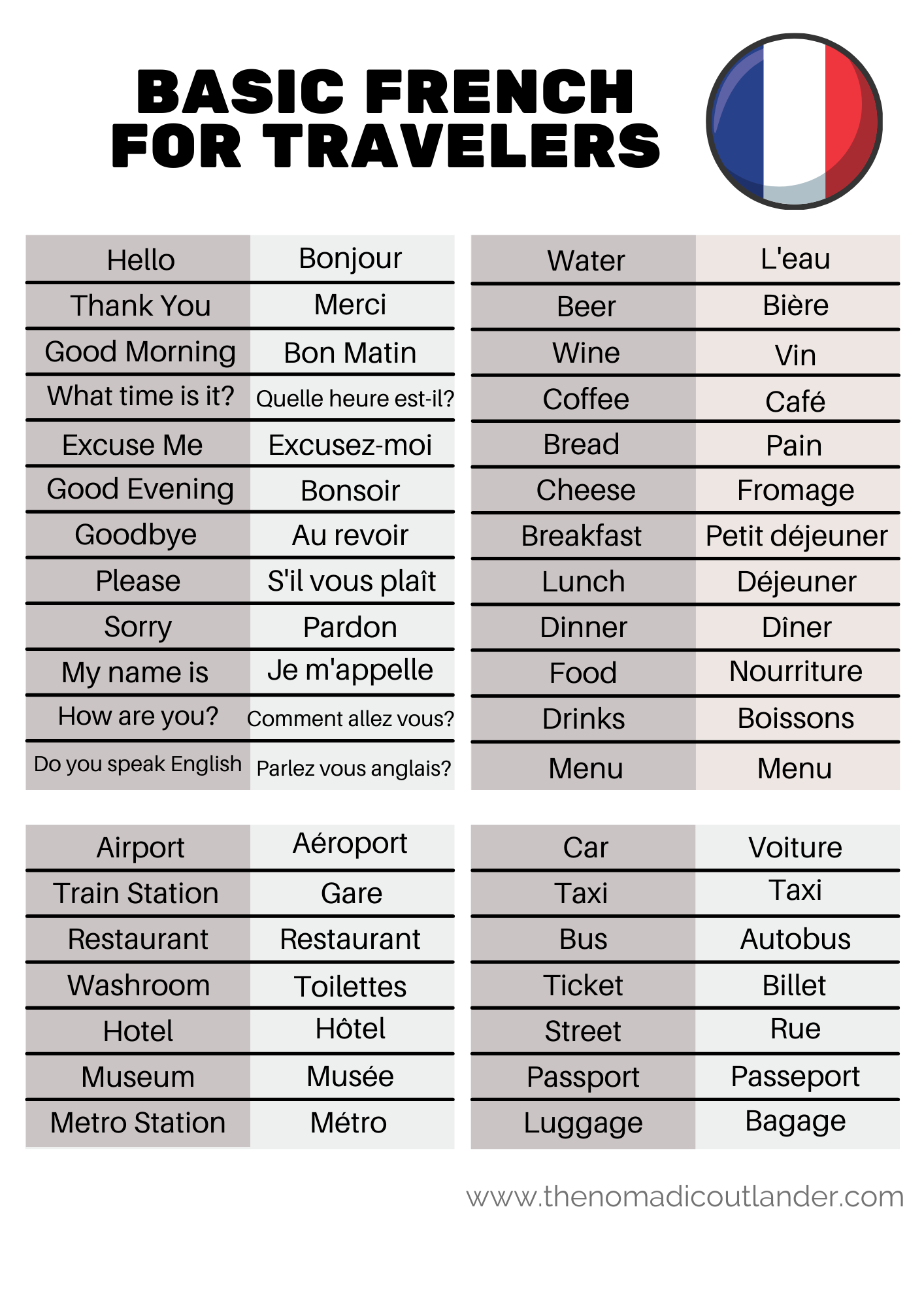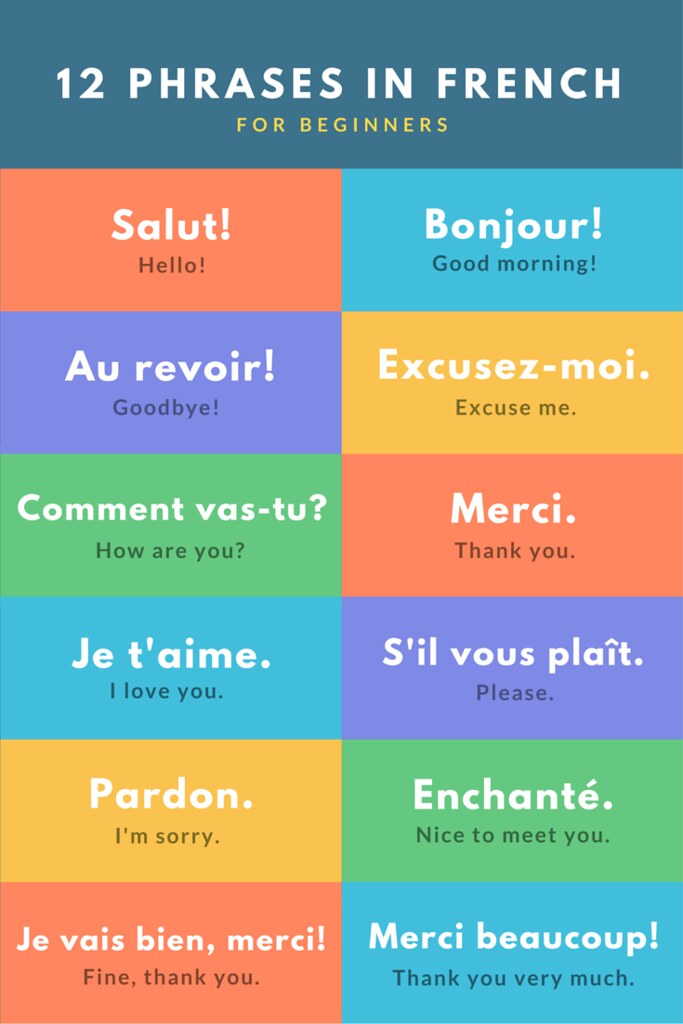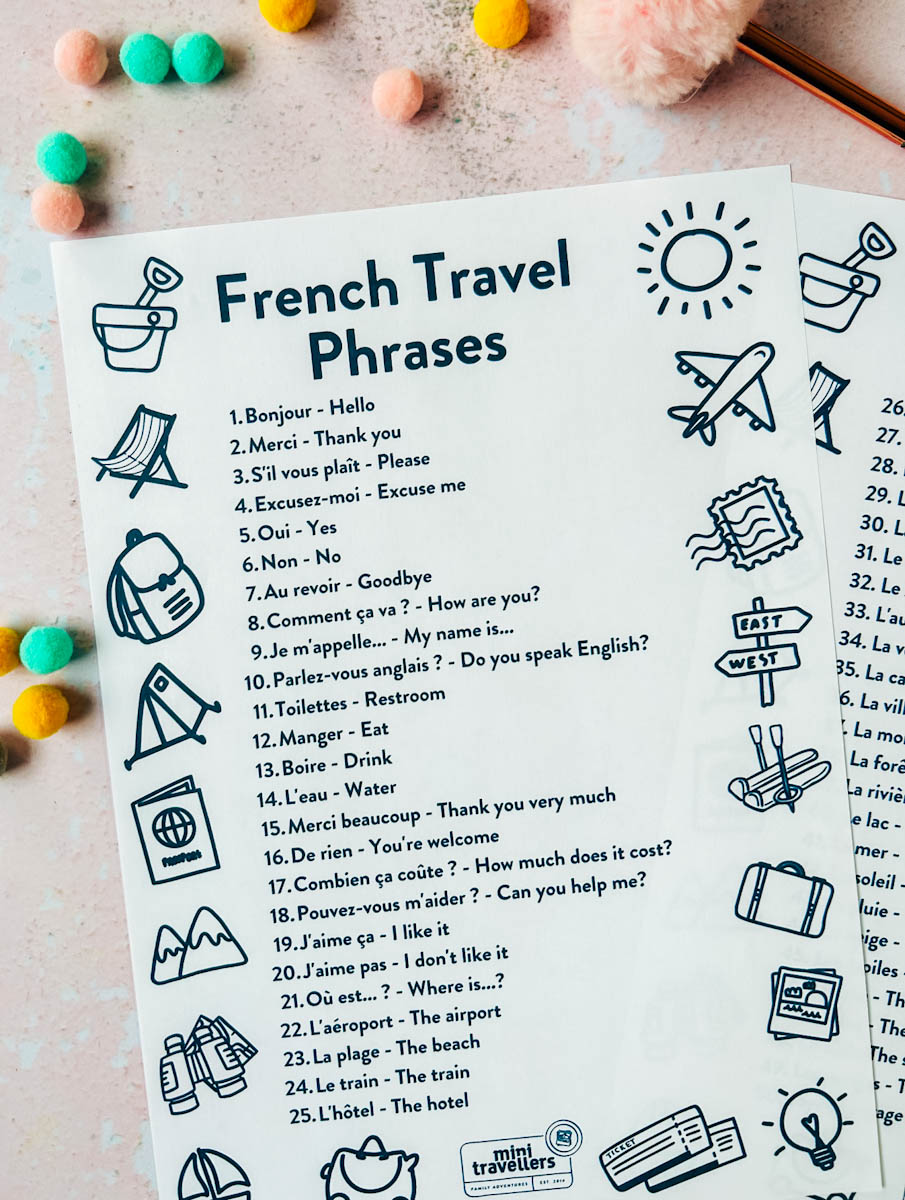Traveling to a new country is always an exciting adventure, and knowing some local language can make your experience even more enriching. Whether you’re sipping coffee in a quaint Parisian café or exploring the lavender fields of Provence, understanding and using French phrases can enhance your interaction with locals and make your travels more enjoyable. In this comprehensive guide, we’ll cover essential French phrases for tourists, along with personal travel experiences, tips, and destination highlights.
Why Learn French Phrases as a Tourist?
As a travel enthusiast, I can assure you that knowing a few key phrases in French can transform your experience. Not only does it show respect for the culture, but it also opens doors to deeper connections. Here are a few reasons why learning French phrases is beneficial:
- Enhances Communication: Many locals appreciate when tourists make an effort to speak their language, even if it’s just a few words.
- Cultural Respect: Speaking the language demonstrates respect for the French culture and helps break down barriers.
- Improves Experience: From ordering food to asking for directions, knowing French can simplify your day-to-day interactions.
Essential French Phrases: A Quick Reference Table

| English Phrase | French Phrase | Pronunciation |
|---|---|---|
| Hello | Bonjour | Bohn-zhoor |
| Thank you | Merci | Mehr-see |
| Please | S’il vous plaît | Seel voo pleh |
| Yes | Oui | Wee |
| No | Non | Nohn |
| Excuse me | Excusez-moi | Ex-kew-zay mwah |
| Do you speak English? | Parlez-vous anglais? | Pahr-lay voo ahn-glay |
| Where is…? | Où est…? | Oo eh…? |
| How much is this? | C’est combien? | Say kohm-byenn? |
| I would like… | Je voudrais… | Zhuh voo-dray… |
Personal Travel Experience: Using French Phrases in Real Life

On my last trip to France, I was in Mont Saint-Michel, and after a day of exploration, I decided to grab dinner at a local bistro. As I approached the counter, I simply said, “Bonjour!” and instantly, the chef replied with a warm smile, “Bonjour!” back. I ordered my meal using the phrase, “Je voudrais une tarte aux pommes, s’il vous plaît.” The chef appreciated my effort to speak in French, and we ended up chatting about the best dessert spots in the area. It was a memorable experience that would have likely felt much more transactional without those few simple phrases.
Common French Phrases for Dining and Shopping

Dining Out
Dining in France is not just about food; it’s a cultural experience. Below are phrases that will help you navigate menus and order food like a local:

- Could I have the menu, please? – Pourrais-je avoir le menu, s’il vous plaît?
- What do you recommend? – Que recommandez-vous?
- I have a reservation. – J’ai une réservation.
- The bill, please. – L’addition, s’il vous plaît.
Shopping

When shopping, knowing how to ask for help or inquire about products can be beneficial:
- Where can I find…? – Où puis-je trouver…?
- Can I try this on? – Puis-je essayer ceci?
- Do you have this in a different size? – Avez-vous ceci dans une taille différente?

Useful French Phrases for Transportation
Traveling around France often involves using public transportation. Here are essential phrases to help you navigate:

- Where is the train station? – Où est la gare?
- I need a taxi. – J’ai besoin d’un taxi.
- What time does the train leave? – À quelle heure part le train?
Travel Tips: Maximizing Your French Language Experience
1. Practice Before You Go
Familiarize yourself with common phrases through language apps, flashcards, or even language exchange with native speakers.
2. Learn Local Dialects
French is spoken in various dialects across regions. When traveling to specific areas, it’s beneficial to learn local phrases or accents.
3. Be Patient and Open
Language barriers can sometimes lead to confusion. Stay patient and open-minded, and don’t hesitate to use gestures or visual aids to help communicate.
4. Carry a Phrasebook or PDF
Having a physical or digital copy of essential phrases on your phone can be a lifesaver. Download a PDF with useful French phrases to keep at your fingertips.
Top Destinations in France and Useful Phrases
1. Paris
As the capital city, Paris is filled with iconic landmarks, art, and culture. Essential phrases for Paris include:
- Café au lait, s’il vous plaît (Coffee with milk, please)
- À quelle station de métro dois-je descendre? (Which metro station should I get off at?)
2. French Riviera (Côte d’Azur)
This glamorous region requires some beachy phrases:
- Où se trouve la plage la plus proche? (Where is the nearest beach?)
- Je voudrais une chaisse longue, s’il vous plaît (I would like a sun lounger, please)
3. Provence
Known for its landscapes and cuisine, useful phrases include:
- Je suis perdu (I am lost)
- Quelle est la spécialité de la région? (What is the local specialty?)
Pros and Cons of Learning French Phrases
Pros
- Enhances travel experiences and connections
- Boosts confidence while traveling
- Allows for deeper cultural appreciation
Cons
- Learning a new language takes time and effort
- Potential for miscommunication
- Some phrases may vary significantly across regions
FAQs: Essential French Phrases for Tourists
1. What are the basic French phrases every tourist should know?
Basic phrases include greetings (Bonjour), thank you (Merci), please (S’il vous plaît), and asking for help (Excusez-moi).
2. Are there any language apps that can help with learning French phrases?
Yes! Popular apps like Duolingo, Babbel, and Rosetta Stone offer structured lessons that help with learning essential phrases in context.
3. Can I get by speaking English in France?
While many people in tourist areas speak English, especially in Paris, knowing some French phrases can significantly enhance your experience.
4. Is it necessary to learn French to visit France?
No, but it’s highly recommended. Learning a few phrases can enrich your interactions and show respect for the local culture.
Conclusion: Embrace the French Language on Your Travels
As you prepare for your adventure in France, remember that a little effort goes a long way. Utilizing these essential French phrases can not only make your travels smoother but also create more meaningful connections with the locals. So grab that phrasebook, practice those pronunciations, and embark on your journey with confidence! Bon voyage!